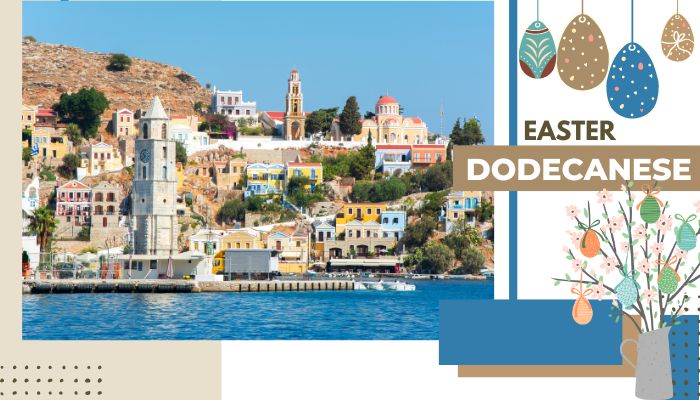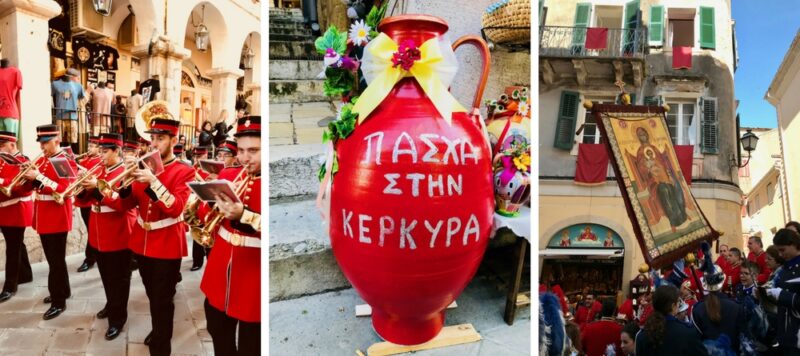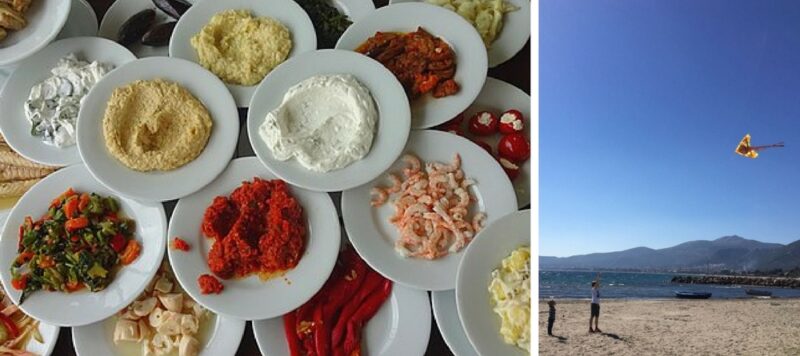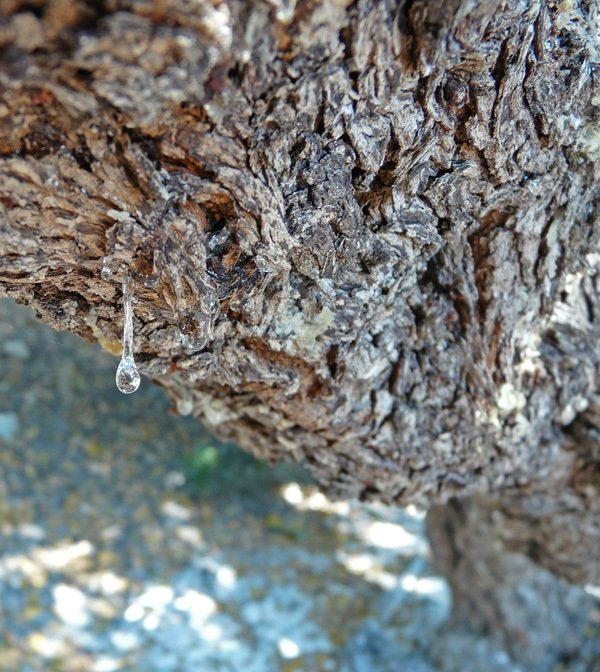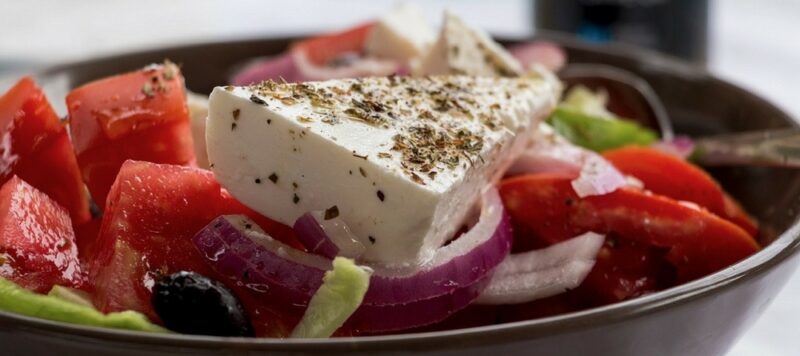The islands of the Dodecanese. They are called ” the twelve islands “(dodeca = twelve in Greek). But in reality the archipelago includes 26 inhabited islands and several dozen deserted islets. These islands of the Dodecanese are linked by history and love of the sea.
Saint John is said to have written the Apocalypse in Patmos. Kos saw the birth of Hippocrates, the father of medicine. In Kalymnos there are still sponge divers and the volcano of Nissyros is still active.
The Easter season is ideal to discover the Dodecanese islands : the landscapes are beautifully flowered, the tourist season starts but we are far from the summer crowds and the typical and tasty specialties make the happiness of our taste buds! A small retrospective of the culinary wonders offered at Easter in the Dodecanese.
The main dishes of the Dodecanese islands
Lamb and kid are, of course, in the spotlight. Stuffed with bulgur, giblets, raisins, pine nuts and sometimes even candied bergamot, it is called ” vyzanti “. In Karpathos, this dish is baked in the bread oven during the whole night of Holy Saturday.
But if you arrive too early for the Easter lamb, don’t panic. The Dodecanese islands are specialists in ” nistissima “, the Lenten dishes. In Rhodes, they make delicious ” pitaroudia “, small fried chickpea cakes flavored with mint and cumin. All kinds of dumplings with vegetables, wild herbs such as marathokeftedès (fennel dumplings) or fish adorn the Holy Week table. Not forgetting the famous “ chtapodokeftédès “, typical octopus dumplings of Kalymnos.
A mix of local products and flavors from elsewhere
Expelled from the Holy Land, the Knights of Saint John of Jerusalem settled in Rhodes in 1310. They then surrounded it with a powerful wall, founded the first hospital and enjoyed a long period of prosperity. The beautiful medieval city dates from this period.
The spice trade between the East and Western Europe has left its mark on the local cuisine. Oriental but also European specialties have shaped the local culinary art.
What makes the cuisine of the Dodecanese special and interesting is the combination of local products and culinary influences from elsewhere. Thus, unusual marriages are formed, for example that of pulses and starches. The fakoryzo of Chalki or the arantista of Astypalaia: lentils with rice. Elsewhere, chickpeas or black-eyed beans are combined with bulgur, pasta or couscous.
The products of the sea put in the honor
Indeed, the treasures of the sea are very appreciated by the inhabitants of the archipelago. The latter have invented a thousand and one ways of tasting them: from kakavia, the fishermen’s soup, to bottarga with octopus eggs, through sun-dried lobster and shellfish preserved in sea water. The Mediterranean parrot fish, skaros in Greek, is very popular in the region. It is cooked with tomato and onions, but in Symi its viscera are dried in the sun. It is an excellent mezze with tsipouro!
However, the originality of this island cuisine does not stop there. Vine leaves stuffed with squash, kokkinotyri, red cheese with Kos wine lees, all-black risotto with squid ink, sea urchin pasta, turnovers stuffed with wild herbs and sprinkled with sugar, are just a few of the amazing tastes to discover.
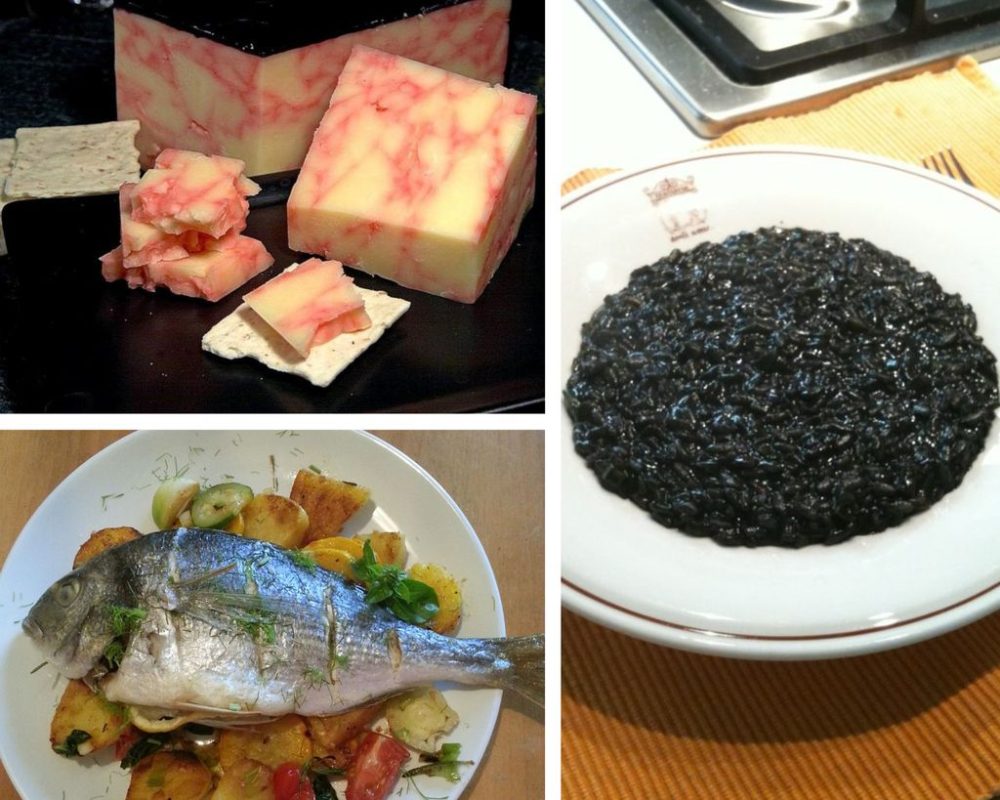
The almond: the essential ingredient of all sweets
Finally, easier to consume, almond sweets are always a hit. The island of Leros, very small and almost unknown, is a Mecca of almond confectionery. The amygdalota, dumplings with almond powder and paximadi (dry bread), the soumada (orgeat liquor) locally called diassogalo or the poungia, sweet and bitter almond turnovers, drizzled with syrup, will delight visitors before or after Lent.
*****
Thanks to Evi Siougari-Parmantier for sharing with us her love of the Greek islands and for writing this article. Evi and Marc, her husband, have a guesthouse in the heart of an organic olive grove in the Peloponnese. A paradise for all those who want to spend a nature vacation in Greece. And to learn more, it’s here.
